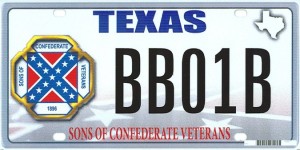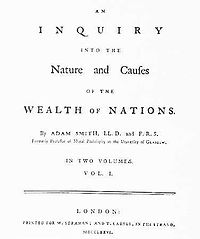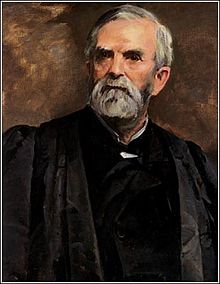Waggoner owned a working interest in a carbon dioxide well that sold to Denbury Resources. He alleged that Denbury sold carbon dioxide to its subsidiaries at low prices, thereby decreasing the royalties it had to pay, and resulting in less money for Waggoner. The Court affirmed the dismissal of his claim, relying on Jebaco v. Harrah’s Operating Co., 587 F.3d 314 (5th Cir. 2009), which found no antitrust standing from the effect of casinos’ behavior on riverboat rentals, and Bailey v. Shell W. E&P, Inc., 609 F.3d 710 (5th Cir. 2010), which involved a similar royalty claim. “As with the decrease in per-patron [rental] fees in Jebaco, Waggoner’s decrease in royalties is the result of downstream conduct by the payor, in a market in which Waggoner is not a participant.” Waggoner v. Denbury Onshore, LLC, No. 14-60310 (May 20, 2015, unpublished).
Monthly Archives: June 2015
A revised Templeton v. O’Cheskey did not alter the Fifth Circuit’s analysis about proof of a Ponzi scheme, but slightly clarified the scope of its holding about “good faith” under the fraudulent transfer provision of the Bankruptcy Code. That holding was that the “good faith test under Section 548(c) is generally presented as a “two-step inquiry” into (1) whether the transferee had “inquiry notice” of the transferor’s possible insolvency or possible fraud and (2) if so, whether the transferee then satisfied a “diligent investigation” requirement. No. 14-10563 (June 8, 2015). (The Fifth Circuit addressed the related “good faith” requirement under TUFTA in GE Capital v. Worthington National Bank, 754 F.3d 297 (5th Cir. 2014)).
In Texas v. United States, the high-profile challenge to the Obama Administration’s immigration policies, the oral argument panel has been announced for the “merits” argument on July 10 — Judges King, Smith, and Elrod. Of course, Judges Smith and Elrod were the two majority votes on the “preliminary stay” panel that ruled for the plaintiffs and denied a stay, strongly signalling how they will the view the issues presented in this phase of the case.
 Three counties sued MERS (“Mortgage Electronic Registration Systems, Inc.”) for violations of various statutes related to the recording of deeds of trust (the Texas equivalent of a mortgage). In a nutshell, MERS is listed as the “beneficiary” on a deed of trust while the note is executed in favor of the lender. “If the lender later transfers the promissory note (or its interest in the note) to another MERS member, no assignment of the deed of trust is created or recorded because . . . MERS remains the nominee for the lender’s successors and assigns.” The counties argued that this arrangement avoided significant filing fees. The Fifth Circuit affirmed judgment for MERS, finding (1) procedurally, that the Texas Legislature did not create a private right of action to enforce the relevant statute and (2) substantively, that the statute was better characterized as a “procedural directive” to clerks rather than an absolute rule. Other claims failed for similar reasons. Harris County v. MERSCORP Inc., No. 14-10392 (June 26, 2015).
Three counties sued MERS (“Mortgage Electronic Registration Systems, Inc.”) for violations of various statutes related to the recording of deeds of trust (the Texas equivalent of a mortgage). In a nutshell, MERS is listed as the “beneficiary” on a deed of trust while the note is executed in favor of the lender. “If the lender later transfers the promissory note (or its interest in the note) to another MERS member, no assignment of the deed of trust is created or recorded because . . . MERS remains the nominee for the lender’s successors and assigns.” The counties argued that this arrangement avoided significant filing fees. The Fifth Circuit affirmed judgment for MERS, finding (1) procedurally, that the Texas Legislature did not create a private right of action to enforce the relevant statute and (2) substantively, that the statute was better characterized as a “procedural directive” to clerks rather than an absolute rule. Other claims failed for similar reasons. Harris County v. MERSCORP Inc., No. 14-10392 (June 26, 2015).
A set of “kaleidoscopic claims” about the Houston ISD’s contracting process produced several RICO holdings of note in Ramirez Group v. Houston ISD, No. 13-20753 (May 18, 2015):
- To show the requisite injury, “[a] plaintiff need not show that the other party would have been obliged to confer a benefit, only that the other party would have conferred the benefit.” This can be shown by a substantial drop in work assignments coupled with other suspicious activity.
- The Houston ISD is immune from suit under RICO, because a governmental entity cannot form the requisite criminal intent, and because municipal entities enjoy common law immunity from punitive damages.
- Official immunity does not extend to a school trustee accused of acting “wholly outside the legitimate scope” of his duties by allegedly accepting bribes.
- The requisite mental state for tortious interference can be shown “[w]here only a limited number of . . . contractors would be selected, [so] all of the participants in the scheme ‘knew the interference was substantially certain to occur as a result of the conduct.'”
1. Improper joinder when the acts of the nondiverse employee that allegedly tortiously interfered with the plaintiff’s contract were ratified by the employer. Denson v. Beavex, Inc., No. 14-20534 (May 22, 2015, unpublished).
2. No appellate jurisdiction when the district court administratively closed the case in favor of arbitration. “[A]n order by the district court administratively closing a case is tantamount to a stay, and bars appellate review.” Walker v. TA Operating, LLC, No. 14-41046 (May 22, 2015, unpublished).
3. “[A] district court cannot permissively abstain from exercising jurisdiction in proceedings related to Chapter 15 [cross-border bankruptcy] cases.” Firefighters’ Retirement System v. Citco Group Ltd., No. 14-30857 (revised August 6, 2015).
4. A lawyer who intervenes in a client’s case to protect a fee interest must independently establish diversity of citizenship and the requisite amount in controversy. Samuels v. Twin City, No. 14-31203 (May 18, 2015, unpublished).
 After completing her Chapter 13 plan, Juliana Jett owed roughly $35,000 on her mortgage, with $0 past due. Her Experian credit report, however, erroneously showed it as discharged with a $0 balance, which Jett alleged caused her to be denied refinancing. She complained to Experian four times, who in turn sent an “automatic credit dispute verification form” to American Home Mortgage Servicing each time. She sued under the Fair Credit Reporting Act, alleging that “[i]n each instance, American Home tried to correct the information but returned a blank [Consumer Information Indicator] field so Experian did not process the updates.” The Fifth Circuit reversed a summary judgment for the servicer as to Jett’s negligence claim, noting that this evidence allowed an inference that “American Home knew that Jett’s information was being reported inaccurately and attempted to correct it.” The adequacy of the servicer’s procedures was an issue to be resolved at trial. Jett v. American Home Mortgage Servicing, Inc., No. 14-10771 (June 10, 2015, unpublished).
After completing her Chapter 13 plan, Juliana Jett owed roughly $35,000 on her mortgage, with $0 past due. Her Experian credit report, however, erroneously showed it as discharged with a $0 balance, which Jett alleged caused her to be denied refinancing. She complained to Experian four times, who in turn sent an “automatic credit dispute verification form” to American Home Mortgage Servicing each time. She sued under the Fair Credit Reporting Act, alleging that “[i]n each instance, American Home tried to correct the information but returned a blank [Consumer Information Indicator] field so Experian did not process the updates.” The Fifth Circuit reversed a summary judgment for the servicer as to Jett’s negligence claim, noting that this evidence allowed an inference that “American Home knew that Jett’s information was being reported inaccurately and attempted to correct it.” The adequacy of the servicer’s procedures was an issue to be resolved at trial. Jett v. American Home Mortgage Servicing, Inc., No. 14-10771 (June 10, 2015, unpublished).
Building on In re Deepwater Horizon, ___ S.W.3d ___, 2015 WL 674744 (Tex. Feb. 13, 2015), in Ironshore Specialty Ins. Co. v. Aspen Underwriting, the Fifth Circuit addressed whether the following insurance policy provision limited the excess insurer’s obligations to a $5 million that the insured was obliged to provide under another contract: “The word ‘Insured,’ wherever used in this Policy, shall mean . . . any person or entity to whom [Insured] is obliged by a written ‘Insurance Contract’ entered into before any relevant ‘Occurrence’ and/or ‘Claim’ to provide insurance such as is afforded by this Policy.” The Court found that it did, even though the contract at issue in Deepwater Horizon had additional provisions that bore on this question. No. 13-51027 (June 10, 2015).
On rehearing, the Fifth Circuit vacated its earlier panel opinion in Wooten v. McDonald Transit Associates, 775 F.3d 689 (5th Cir. 2015), which reversed a default judgment because of inadequate underlying pleadings, and replaced it with an opinion affirming the default judgment. The new opinion holds that “[a]lthough Wooten’s complaint contained very few factual allegations, we conclude that it met the low threshold of content demanded by Federal Rule of Civil Procedure 8 because it provided McDonald Transit with fair notice of Wooten’s claims.” No. 13-11035 (June 10, 2015). The Court thus continues to reserve the question left open in Nishimatsu Construction Co. v. Houston Nat’l Bank, 515 F.2d 1200 (5th Cir. 1975): “We do not consider here the possibility that otherwise fatal defects in the pleadings might be corrected by proof taken by the court at a hearing.”
A business dispute about a telephone service provider’s billing system leads to 2 holdings of broad interest, one procedural and the other substantive:
1A. Waiver. “Although [defendant] moved for a directed verdict at the close of evidence, it did not argue in its motion that the Supply Contract was unenforceable.” Accordingly, under Fed. R. Civ. 50(b), that argument could not be raised post-trial. (Here, in fact, because defendant took the opposite position about the contract in the directed verdict motion, judicial estoppel also barred the later argument.)
1B. Waiver of Waiver. When defendant relied on a certain letter agreement in its Rule 50(b) motion, and plaintiff “did not argue waiver in its response . . . [plaintiff] has forfeited its right to raise the waiver issue on appeal.”
2. Speculative damages. A “strained business relationship” between the parties supported a holding that plaintiff’s $10 million lost profits award, assuming six years of business dealings, was not proven with “reasonable certainty.” Transverse LLC v. Iowa Wireless Services, LLC, No. 13-51098 (revised Aug. 5, 2015, unpublished).
During the 1980s, the Jefferson Group failed to pay both a large loan and its property taxes. The lender failed and the RTC/FDIC acquired the deed of trust for the loan, which it later assigned to another entity. The local school district foreclosed on the property in 1990. Many years later, a dispute arose between the entity who acquired the deed of trust, who asserted a lien on the (now-developed) land, and the owners who traced title to the foreclosure sale. The district court dismissed on limitations grounds. The Fifth Circuit concluded that if the RTC had not effectively consented to the foreclosure sale, then it violated 12 U.S.C. § 1825(b)(2), which meant that the sale “is, without qualification, ‘null and void.'” This would mean that the current owners could not assert a limitations defense. The Court remanded to consider whether a violation had occurred, in light of this conclusion about the effect of a violation. CAP Holdings, Inc. v. Lorden, No. 14-50397 (June 22, 2015).
Adler, the distributing agent for a bankrupt business, sought to sue a law firm for allegedly mishandling its affairs and causing its financial problems. The business’s Third Amended Plan of Reorganization had a provision that retained its standing to pursue avoidance and fraudulent transfer actions against a list of named defendants (which did not include the law firm). The Plan also had a provision reserving “[a]ny and all other claims and causes of action which may have been asserted by the Debtor prior to the Effective Date.” The Fifth Circuit held that this was “exactly the sort of blanket reservation that is insufficient to preserve the debtor’s standing.” (citing Dynasty Oil & Gas LLC v. Citizens Bank, 540 F.3d 551 (5th Cir. 2008)). On waiver grounds, he Court declined to consider whether such a reservation would be sufficient if “(1) the defendant is a non-creditor [and thus not entitled to vote on the plan] and (2) the reorganization plan clearly identifies how the proceeds of the claim will be distributed.” Adler v. Frost, No. 14-31109 (June 11, 2015, unpublished).
 Pal-Con, a manufacturer of “regenerators” for gas turbine engines (right), sued a pilot car service for causing a truck wreck that severely damaged one of its products. The service argued that the economic loss rule precluded Pal-Con’s claim. The Fifth Circuit disagreed, citing Chapman Custom Homes, Inc. v. Dallas Plumbing Co., 445 S.W.3d 716, 718 (Tex. 2014). “Here, a manufacturer contracted with a shipper, who subcontracted with a trucking company, who subcontracted with a negligent pilot car service provider . . . [T]he harm suffered by Pal-Con extended beyond the mere economic loss of a contractual benefit from [pilot car service] with [trucking company.]” Pal-Con, Ltd. v. Wheeler, No. 14-10615 (June 22, 2015, unpublished).
Pal-Con, a manufacturer of “regenerators” for gas turbine engines (right), sued a pilot car service for causing a truck wreck that severely damaged one of its products. The service argued that the economic loss rule precluded Pal-Con’s claim. The Fifth Circuit disagreed, citing Chapman Custom Homes, Inc. v. Dallas Plumbing Co., 445 S.W.3d 716, 718 (Tex. 2014). “Here, a manufacturer contracted with a shipper, who subcontracted with a trucking company, who subcontracted with a negligent pilot car service provider . . . [T]he harm suffered by Pal-Con extended beyond the mere economic loss of a contractual benefit from [pilot car service] with [trucking company.]” Pal-Con, Ltd. v. Wheeler, No. 14-10615 (June 22, 2015, unpublished).
 The plaintiffs in Owens v. Jastrow sued officers of Guaranty Bank for securities fraud, alleging that their SEC filings and public comments misstated the vulnerability of the bank’s mortgage-related holdings. No. 13-10928 (June 12, 2015). The Fifth Circuit affirmed dismissal in a detailed opinion, holding, procedurally, that:
The plaintiffs in Owens v. Jastrow sued officers of Guaranty Bank for securities fraud, alleging that their SEC filings and public comments misstated the vulnerability of the bank’s mortgage-related holdings. No. 13-10928 (June 12, 2015). The Fifth Circuit affirmed dismissal in a detailed opinion, holding, procedurally, that:
- “A district court may best make sense of scienter allegations by first looking to the contribution of each individual allegation to a strong inference of scienter, especially in a complicated case such as this one. Of course, the court must follow this initial step with a holistic look at all the scienter allegations”; and
- “Group pleaded” allegations were properly disregarded, although the Court declined to adopt “a strict rule requiring outright dismissal for any group or puzzle pleading[.]”
And on the merits:
- Knowledge of undercapitalization showed motive and opportunity, but does not by itself establish scienter;
- “Defendants’ disclosure of the ‘red flags’ [cited by Plainitiffs] and candidness about the uncertainly underlying its models neutralize any scienter inference from ‘red flags'”; and
- “An inference of severe recklessness is more likely when a statement violates an objective rule than when GAAP permits a range of acceptable outcomes.”
Therefore: “Considered holistically, plaintiffs’ allegations of knowledge of Guaranty’s undercapitalization, a large misstatement, red flags, and ignorance of internal warnings, do not raise a strong inference of severe recklessness that is equally as likely as the competing inference that [Defendants] negligently relief on the AAA ratings and believed that Guaranty’s internal models were accurate.”
 Zastrow, owner of an auto repair shop, testified in an arbitration about problems with a CLK sedan sold by Mercedes Greenway. He later sued Mercedes Greenway himself, alleging that it “threatened him to prevent him from testifying and then, with the assistance of [a lawyer], retaliated against him by refusing to sell him auto parts after he gave his deposition.” The Fifth Circuit affirmed the dismissal of his RICO claims, finding (1) no pattern of racketeering activity, (2) no continuity of racketeering activity, and (3) no enterprise separate from the alleged racketeering activity. It reversed dismissal of Zastrow’s claim for retaliation under 42 U.S.C. § 1981 — while noting that “[w]e are skeptical” about its merits, the Court found that the defendant had not fully engaged the burden-shifting analysis that governs this type of claim. Zastrow v. Houston Auto Imports Greenway Ltd., No. 14-20359 (June 12, 2015).
Zastrow, owner of an auto repair shop, testified in an arbitration about problems with a CLK sedan sold by Mercedes Greenway. He later sued Mercedes Greenway himself, alleging that it “threatened him to prevent him from testifying and then, with the assistance of [a lawyer], retaliated against him by refusing to sell him auto parts after he gave his deposition.” The Fifth Circuit affirmed the dismissal of his RICO claims, finding (1) no pattern of racketeering activity, (2) no continuity of racketeering activity, and (3) no enterprise separate from the alleged racketeering activity. It reversed dismissal of Zastrow’s claim for retaliation under 42 U.S.C. § 1981 — while noting that “[w]e are skeptical” about its merits, the Court found that the defendant had not fully engaged the burden-shifting analysis that governs this type of claim. Zastrow v. Houston Auto Imports Greenway Ltd., No. 14-20359 (June 12, 2015).
Disputes between borrowers and mortgage servicers are common; jury trials in those disputes are rare. But rare events do occur, and in McCaig v. Wells Fargo Bank, 788 F.3d 463 (5th Cir. 2015), a servicer lost a judgment for roughly $400,000 after a jury trial.
The underlying relationship was defined by a settlement agreement in which “Wells Fargo has agreed to accept payments from the McCaigs and to give the McCaigs the opportunity to avoid foreclosure of the Property; as long as the McCaigs make the required payments consistent with the Forbearance Agreement and the Loan Agreement.” Unfortunately, Wells’s “‘computer software was not equipped to handle’ the settlement and forbearance agreements meaning ‘manual tracking’ was required.” This led to a number of accounting mistakes, which in turn led to unjustified threats to foreclose and other miscommunications.
In reviewing and largely affirming the judgment, the Fifth Circuit reached several conclusions of broad general interest:
- The “bona fide error” defense under the Texas Debt Collection Act allows a servicer to argue that it made a good-faith mistake; Wells did not plead that defense here, meaning that its arguments about a lack of intent were not pertinent to the elements of the Act sued upon by plaintiffs;
- The economic loss rule did not bar the TDCA claims, even though the alleged misconduct breached the parties’ contract: “[I]f a particular duty is defined both in a contract and in a statutory provision, and a party violates the duty enumerated in both sources, the economic loss rule does not apply”;
- A Casteel – type charge issue is not preserved if the objecting party submits the allegedly erroneous question with the comment “If I had to draft this over again, that’s the way I’d draft it”;
- The plaintiffs’ lay testimony was sufficient to support awards for mental anguish; and
- “[A] print-out from [plaintiffs’] attorney’s case management system showing individual tasks performed by the attorney and the date on which those tasks were performed” was sufficient evidence to support the award of attorneys fees.
A dissent took issue with the economic loss holding, and would find all of the plaintiffs’ claims barred; “[t]he majority’s reading of these [TDCA] provisions specifically equates mere contract breach with statutory violations[.]”
 Electrostim, a provider of medical electrical stimulation services, sued Blue Cross for several reimbursement issues, as well as wrongful contract termination. The Fifth Circuit found that the district court improperly denied leave to amend on the key issue, noting that in Electrostim’s briefing: “Electrostim specifically drew the district court’s attention to . . . partially paid claims and argued that its lawsuit challenged not only the denial of claims, but also the rate at which claims were paid. As we have explained, ERISA does not preempt state-law claims based on an allegedly improper rate of payment in violation of a provider agreement. Therefore, Electrostim has demonstrated, both to the district court and to this court, that because Electrostim can amend its complaint to put at issue the rate at which BCBSTX paid the partially paid claims, amendment would not be futile.” Electrostim Medical Services, Inc. v. Health Care Service Corp., No. 13-20649 (June 16, 2015, unpublished).
Electrostim, a provider of medical electrical stimulation services, sued Blue Cross for several reimbursement issues, as well as wrongful contract termination. The Fifth Circuit found that the district court improperly denied leave to amend on the key issue, noting that in Electrostim’s briefing: “Electrostim specifically drew the district court’s attention to . . . partially paid claims and argued that its lawsuit challenged not only the denial of claims, but also the rate at which claims were paid. As we have explained, ERISA does not preempt state-law claims based on an allegedly improper rate of payment in violation of a provider agreement. Therefore, Electrostim has demonstrated, both to the district court and to this court, that because Electrostim can amend its complaint to put at issue the rate at which BCBSTX paid the partially paid claims, amendment would not be futile.” Electrostim Medical Services, Inc. v. Health Care Service Corp., No. 13-20649 (June 16, 2015, unpublished).
A shipbuilder, under contract to the federal government, sought to remove an asbestos claim to federal court under the “Federal Officer Removal Statute,” 28 U.S.C. § 1442. The Fifth Circuit concluded that the shipbuilder was acting at the direction of the federal government, but that the plaintiff’s pleading did not establish a link between his alleged exposure and the shipbuilder’s boat (a seemingly fundamental causation problem, but not implicated at this initial procedural stage). Wilde v. Huntington Ingalls, Inc. (June 19, 2015, unpublished).
In Zente v. Credit Management, L.P., an attorney sought to appeal the district court’s referral of a Rule 11 matter to the Western District of Texas disciplinary committee. The Fifth Circuit found that he had no standing: “In accordance with the cases from our sister circuits, we conclude that a referral of attorney conduct to a disciplinary committee, absent a specific finding of misconduct, is not a sanction that confers standing to appeal. Thus, [Attorney] has standing to appeal in the instant case only if the district court’s referral to the Admissions Committee was accompanied by a specific finding of misconduct. In the circumstances of this case, we conclude that the court made no finding of misconduct. The district court made no findings like those that courts have found conferred standing to appeal. It made no factual findings or legal conclusions regarding the alleged misconduct, and made no implied or explicit finding that [Attorney] violated any ethical rule or canon. No. 14-50910 (June 15, 2015).
 In a 5-4 decision, the Supreme Court reversed the Fifth Circuit’s 2-1 panel opinion in the “Confederate Flag License Plate Case,” :reasoning: “Texas’s specialty license plate designs constitute government speech, and thus Texas was entitled to refuse to issue plates featuring [the Sons of Confederate Veteran’s] proposed design.” A thoughtful dissent begins: “The Court’s decision passes off private speech as government speech and, in doing so, establishes a precedent that threatens private speech that government finds displeasing.”
In a 5-4 decision, the Supreme Court reversed the Fifth Circuit’s 2-1 panel opinion in the “Confederate Flag License Plate Case,” :reasoning: “Texas’s specialty license plate designs constitute government speech, and thus Texas was entitled to refuse to issue plates featuring [the Sons of Confederate Veteran’s] proposed design.” A thoughtful dissent begins: “The Court’s decision passes off private speech as government speech and, in doing so, establishes a precedent that threatens private speech that government finds displeasing.”
An architectural firm sued a former employee and a competitor. The Fifth Circuit affirmed judgment for the defendants in Hunn v. Dan Wilson Homes, No. 13-11297 (June 15, 2015). As to the firm’s claim for breach of fiduciary duty, the Fifth Circuit found no error in the district court’s finding that “the plans in the AutoCAD files were the same as the physical copies of the plans that [had] already been disseminated by [Plaintiff]” to various homeowners. A noncompete claim failed for lack of an express promise related to confidential information. Other claims based on copyright, the Lanham Act, contract, and the Computer Fraud and Abuse Act failed for similar proof problems. Particularly as to the elements of a noncompete claim under Texas law, the opinion provides a practical summary of potential claims related to an employee’s departure, as well as several commonly-litigated factual issues related to those claims.
As a counterpoint to the recent case of Alonso v. Abide — which required leave of court to sue a bankruptcy trustee for alleged negligence in handling a claim against a debtor’s insurer — in Carroll v. Abide, the Fifth Circuit reversed the dismissal of a claim against a trustee because leave was not required. No. 14-31230 (June 11, 2015). The debtors sued, alleging that the trustee violated their Fourth Amendment rights in seizing a computer. Again applying Barton v. Barbour, 104 U.S. 126 (1881), the Court concluded: “[B]ecause the [debtors] complain of the bankruptcy trustee’s conduct while carrying out district court orders, we conclude that the plaintiffs were not required to seek permission from the bankruptcy court before filing suit in the district court regarding the challenged conduct.” (emphasis added).
 The Spongs bought property on Galveston Island and obtained flood insurance under the National Flood Insurance Program. Unfortunately, their property was located in an “coastal barrier resources system” area, ineligible for flood insurance; even more unfortunately, Hurricane Ike completely swept away everything on the property. The record showed confusion about the property address and the records kept by FEMA and the Fish and Wildlife Service. On an interlocutory appeal, the Fifth Circuit held that: (1) federal law did not preempt the Spongs’ claims related to “procurement,” as opposed to “claims handling,” but (2) “[i]n determining whether the property was within the CBRS and therefore eligible for a federal flood insurance policy, [the insurer] was acting as the representative of the Government, not the Spongs”; accordingly, the Spongs could not establish reasonable reliance. Spong v. Fidelity Nat’l Prop. & Cas. Ins. Co., No. 13-41317 (May 22, 2015).
The Spongs bought property on Galveston Island and obtained flood insurance under the National Flood Insurance Program. Unfortunately, their property was located in an “coastal barrier resources system” area, ineligible for flood insurance; even more unfortunately, Hurricane Ike completely swept away everything on the property. The record showed confusion about the property address and the records kept by FEMA and the Fish and Wildlife Service. On an interlocutory appeal, the Fifth Circuit held that: (1) federal law did not preempt the Spongs’ claims related to “procurement,” as opposed to “claims handling,” but (2) “[i]n determining whether the property was within the CBRS and therefore eligible for a federal flood insurance policy, [the insurer] was acting as the representative of the Government, not the Spongs”; accordingly, the Spongs could not establish reasonable reliance. Spong v. Fidelity Nat’l Prop. & Cas. Ins. Co., No. 13-41317 (May 22, 2015).
Garofolo paid off her home equity note, but did not then receive the cancelled promissory note and a release of lien from the servicer, as required by the Texas Constitution, and the terms of the note. She sued for forfeiture of principal and all interest paid under the Constitution; the servicer admitted not having sent the papers, but contended that having the provision in the note was sufficient to comply with the Constitutional requirement. The Fifth Circuit certified this issue to the Texas Supreme Court: “Garofolo’s construction appears to give rise to a drastic remedy, but Ocwen’s construction appears to render the requirement a virtual nullity except in the (hopefully rare) circumstance where a lender unscrupulously attempts to enforce a paid note resulting in recoverable damages.” Garofolo v. Ocwen Loan Servicing, LLC, No. 14-51156 (June 9, 2015).
Estes sued JP Morgan Chase, alleging violations of the Texas Constitution with respect to a home equity loan. The Fifth Circuit affirmed dismissal on a basic ground: “Estes’s complaint fails to allege any connection between himself and JPMC except that Estes ‘notified [JPMC] that the original promissory note had not been returned,’ and that ‘[m]ore than 60 days have passed since plaintiff notified [JMPC] of its failure to cancel and return the promissory note.’ Considering the allegations in Estes’s complaint, and taking those allegations as true, Estes has not alleged that JPMC possessed the Note at the relevant time. He also has not alleged that he made payments to JPMC, nor has he alleged any other facts from which the Court could reasonably infer that the Note was made payable to “bearer” or to JPMC, as the definition of “holder” set forth in Tex. Bus. & Com. Code § 1.201 requires.” Estes v. JP Morgan Chase Bank, N.A., No. 14-51103 (May 20, 2015, unpublished).
 Plaintiffs sued Whirlpool, alleging that a gas range it manufactured made them sick from carbon monoxide emissions. They offered two causation experts, whose testimony was stricken by the district court under Daubert, which the Fifth Circuit affirmed. The first opined about the “general causation” link connection between carbon monoxide and health problems, but the main studies he relied on involved significantly higher concentrations than what was measured in Plainitffs’ apartment. The second, an “accomplished engineer with significant expertise in vehicular accident reconstruction and fire and explosion analysis,” did not have expertise on the issue in this case: “No gas appliance fire is at issue in this case; rather, the core claim here is that the gas range was defective because it emitted carbon monoxide in excess of an amount that is safe.” Macy v. Whirlpool Corp., No. 14-20603 (June 4, 2015, unpublished).
Plaintiffs sued Whirlpool, alleging that a gas range it manufactured made them sick from carbon monoxide emissions. They offered two causation experts, whose testimony was stricken by the district court under Daubert, which the Fifth Circuit affirmed. The first opined about the “general causation” link connection between carbon monoxide and health problems, but the main studies he relied on involved significantly higher concentrations than what was measured in Plainitffs’ apartment. The second, an “accomplished engineer with significant expertise in vehicular accident reconstruction and fire and explosion analysis,” did not have expertise on the issue in this case: “No gas appliance fire is at issue in this case; rather, the core claim here is that the gas range was defective because it emitted carbon monoxide in excess of an amount that is safe.” Macy v. Whirlpool Corp., No. 14-20603 (June 4, 2015, unpublished).
 Dan Peterson sued his former employer, Bell Helicopter Textron, for age discrimination under the TCHRA. The jury found that age was a motivating factor in his termination, but also found that Bell would have terminated him even without consideration of his age. The district court awarded no damages, but imposed an injunction on Bell about future age discrimination, and awarded Peterson attorneys fees of approximately $340,000. The Fifth Circuit reversed. Noting that the TCHRA allowed an injunction even in light of the unfavorable causation finding, the Court found that plaintiff’s request came too late, as Fed. R. Civ. P. 54(c) “assumes that a plaintiff’s entitlement to relief not specifically pled has been tested adversarially, tried by consent, or at least developed with meaningful notice to the defendant.” Here, Bell showed that it would have tried the case differently had it known an injunction was at issue. Accordingly, the fee award was also vacated. Peterson v. Bell Helicopter Textron, Inc., No. 14-10249 (June 4, 2015). A revised opinion honed the opinion’s analysis as to a potential alternative ground of fee recovery; the same day it issued, the full Court denied en banc review over a lengthy dissent.
Dan Peterson sued his former employer, Bell Helicopter Textron, for age discrimination under the TCHRA. The jury found that age was a motivating factor in his termination, but also found that Bell would have terminated him even without consideration of his age. The district court awarded no damages, but imposed an injunction on Bell about future age discrimination, and awarded Peterson attorneys fees of approximately $340,000. The Fifth Circuit reversed. Noting that the TCHRA allowed an injunction even in light of the unfavorable causation finding, the Court found that plaintiff’s request came too late, as Fed. R. Civ. P. 54(c) “assumes that a plaintiff’s entitlement to relief not specifically pled has been tested adversarially, tried by consent, or at least developed with meaningful notice to the defendant.” Here, Bell showed that it would have tried the case differently had it known an injunction was at issue. Accordingly, the fee award was also vacated. Peterson v. Bell Helicopter Textron, Inc., No. 14-10249 (June 4, 2015). A revised opinion honed the opinion’s analysis as to a potential alternative ground of fee recovery; the same day it issued, the full Court denied en banc review over a lengthy dissent.
 Defendants claimed that a foreclosure sale produced an unfair windfall for Fannie Mae on a substantial commercial property. They alleged that Fannie Mae had a practice of making unfairly low bids on Gulf Coast properties. The Fifth Circuit observed: “As the district court held, evidence regarding Fannie Mae’s other foreclosure practices throughout the Gulf Coast region would not impact whether the subject property was sold for the amount at which it would have changed hands between a willing buyer and seller having knowledge of the relevant facts. At most, such evidence might have suggested that Fannie Mae’s conduct throughout the region affected the fair market value of the subject property. So long as the property was sold for fair market value, however, evidence of the various market forces influencing that value is not relevant to this case.” Fannie Mae v. Lynch, No. 14-60864 (June 2, 2015, unpublished).
Defendants claimed that a foreclosure sale produced an unfair windfall for Fannie Mae on a substantial commercial property. They alleged that Fannie Mae had a practice of making unfairly low bids on Gulf Coast properties. The Fifth Circuit observed: “As the district court held, evidence regarding Fannie Mae’s other foreclosure practices throughout the Gulf Coast region would not impact whether the subject property was sold for the amount at which it would have changed hands between a willing buyer and seller having knowledge of the relevant facts. At most, such evidence might have suggested that Fannie Mae’s conduct throughout the region affected the fair market value of the subject property. So long as the property was sold for fair market value, however, evidence of the various market forces influencing that value is not relevant to this case.” Fannie Mae v. Lynch, No. 14-60864 (June 2, 2015, unpublished).
Plaintiffs settled a noncompete case with their employer, TXL Mortgage, and signed a broad general release of “all claims and causes of action that were or could have been asserted in the Lawsuit and all claims and causes of action related to or in any way arising from [their] employment with TXL, whether based in tort, contract (express or implied), warranty, deceptive trade practices, or any federal, state or local law, statute, or regulation.” Plaintiffs then sued for overtime wages under the FLSA.
The district court granted summary judgment for the employer, and the Fifth Circuit reversed, applying Martin v. Spring Break ’83 Productions, LLC, 688 F.3d 247 (5th Cir. 2012): “To deem the plaintiffs as having fairly bargained away unmentioned overtime pay based on a settlement that involves a compromise over wages due for commissions and salary would subvert the purpose of the FLSA: namely, in this case, the protection of the
right to overtime pay. Under these circumstances where overtime pay was never specifically negotiated, there is no guarantee that the plaintiffs have been or will be compensated for the overtime wages they are allegedly due under the Act.” Accordingly, the general prohibition on settlement of FLSA claims applied, and the exception recognized in Martin did not. Bodle v. TXL Mortgage Corp., No. 14-20224 (June 1, 2015).
 Constango Operators Inc. built a pipeline beneath the Atchafalaya Channel. Unfortunately, the Corps of Engineers neglected to forward information about that new pipeline to its Waterways Division, which supervises dredging operations. A dredging barge operated by Weeks Marine (the G.D. MORGAN, right) then hit the pipeline. The resulting trial awarded damages to Constango, with the U.S. liable for 60% and Weeks 40%, and the Fifth Circuit affirmed.
Constango Operators Inc. built a pipeline beneath the Atchafalaya Channel. Unfortunately, the Corps of Engineers neglected to forward information about that new pipeline to its Waterways Division, which supervises dredging operations. A dredging barge operated by Weeks Marine (the G.D. MORGAN, right) then hit the pipeline. The resulting trial awarded damages to Constango, with the U.S. liable for 60% and Weeks 40%, and the Fifth Circuit affirmed.
The opinion turns largely on issues or maritime law and the applicable federal regulations, but has three features of broad general interest:
- An exceptionally clear definition of “extrinsic evidence” as “anything outside a contract itself,” which excluded consideration of material from the Federal Register and CFR in construing an exculpatory clause;
- A reminder that a duty of care can arise from common law even though regulations control and define some aspects of the parties’ dealings; and
- A reminder, under general tort law, that “[t]he fact that Weeks followed the custom of the dredging industry is not dispositive, because a common practice can still be negligent.”
Contango Operators, Inc. v. USA, No. 14-20265 (May 28, 2015, unpublished).
Withdrawing an earlier panel opinion, the Fifth Circuit certified two insurance questions to the Louisiana Supreme Court in 2014, which have now been answered:
1. Whether an insurer can be liable for a bad-faith failure-to-settle claim when it never received a firm settlement offer. (The Fifth Circuit noted that a revised statute imposed “an affirmative duty . . . to make a reasonable effort to settle claims,” drawing into question prior case law in the area.) The Louisiana Supreme Court said: “Having determined that the plain language supports the existence of a cause of action in favor of the insured under [the revised statute], we answer this question affirmatively.”
2. Whether an insurer can be liable for “misrepresenting or failing to disclose facts that are not related to the insurance policy’s coverage” — namely, the status of a claim and related settlement negotiations. The answer: ” An insurer can be found liable under [the statute] for misrepresenting or failing to disclose facts that are not related to the insurance policy’s coverage; the statute prohibits the misrepresentation of ‘pertinent facts,’ without restriction to facts ‘relating to any coverages.'”
Accordingly, the Fifth Circuit remanded for further proceedings in Kelly v. State Farm, No. 12-31064 (May 29, 2015, unpublished).
 Former bankruptcy debtors sued their trustee, alleging that he failed to sue an insurer who could have satisfied many creditors’ claims. The district court dismissed because the plaintiffs did not first get leave from the bankruptcy court that appointed the trustee, and the Fifth Circuit affirmed under Barton v. Barbour, 104 U.S. 126, 128 (1881) (an opinion by the otherwise unmemorable William Burnham Woods, right).
Former bankruptcy debtors sued their trustee, alleging that he failed to sue an insurer who could have satisfied many creditors’ claims. The district court dismissed because the plaintiffs did not first get leave from the bankruptcy court that appointed the trustee, and the Fifth Circuit affirmed under Barton v. Barbour, 104 U.S. 126, 128 (1881) (an opinion by the otherwise unmemorable William Burnham Woods, right).
The debtors contended that Stern v. Marshall implicitly overruled Barton, in part, because the bankruptcy court would lack final adjudicative authority over their state law tort claims. The Fifth Circuit disagreed, holding that under Barton: “If a bankruptcy court concludes that the claim against a trustee is one that the court would not itself be able to resolve under Stern, that court can make the initial decision on the procedure to follow. Once a bankruptcy court makes such a determination, this court can review the utilized procedure.” Villegas v. Schmidt, No. 14-40423 (May 28, 2015).